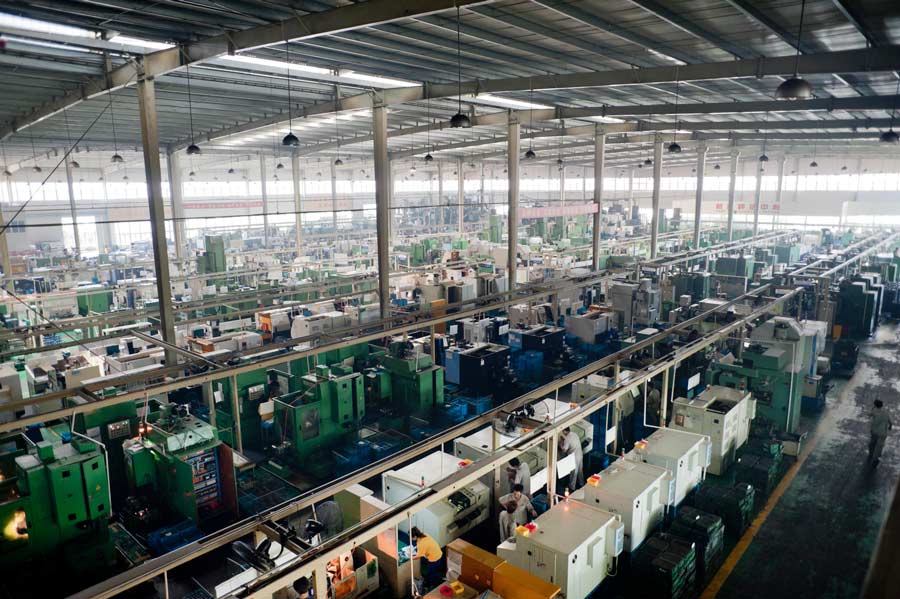The views expressed in our content reflect individual perspectives and do not represent the authoritative views of the Baha'i Faith.
The causes of religious strife will be permanently removed, economic barriers and restrictions will be completely abolished, and the inordinate distinction between classes will be obliterated. – Shoghi Effendi, The World Order of Baha’u’llah, p. 203.
The Guardian of the Baha’i Faith wrote this hopeful quote about a future state of society in a visionary document called The World Order of Baha’u’llah, first published in 1938. That confident statement looks forward to a time in human civilization when world unity reigns, when planetary peace establishes itself, when global governance supplants religious conflict and class consciousness. It also envisions a community of nations that cooperates without the “economic barriers and restrictions” that afflict the world’s complex system of trade relations today.
Shoghi Effendi, writing in The World Order of Baha’u’llah on the eve of the death, chaos and genocide World War II engendered, partially blamed that impending war on what he called “a narrow and brutal nationalism.” The resulting isolationist trend, which restricted the flow of international commerce, made goods and services inordinately expensive, and served to separate the peoples and countries of the world from each other, also imposed severe economic burdens on most people and nations:
That a narrow and brutal nationalism, which the post-war theory of self-determination has served to reinforce, has been chiefly responsible for the policy of high and prohibitive tariffs, so injurious to the healthy flow of international trade and to the mechanism of international finance, is a fact which few would venture to dispute. – Ibid., p. 35.
How, for those of us who know little about international trade (including me), does all this work?
Simply, free trade means nations allow no imposition of trade restrictions on imports from other countries. On the other hand, restrictive or “protectionist” trade policies impose tariffs—basically a tax on imports—chiefly to protect farmers, domestic labor markets and manufacturers, so imports from other countries can’t undercut their prices.
Do you support free trade, or do you consider yourself a protectionist? Typically, free trade means no tariffs or quotas on imports; no restrictive trade laws or regulations; no monopolies; and unregulated access to global markets. Anti-free trade or protectionism means the opposite—support for laws and policies that restrict trade in favor of maintaining domestic jobs and products; not contributing to income inequality or environmental degradation in other places; and opposition to the exploitation of workers in poor and developing nations.
One simple analogy compares trade to migration, where free trade would favor open borders and protectionism would favor closed borders.
Most of the world’s economists and scholars believe that free trade has more benefits than downsides. Free trade certainly creates economic losses among some people in some societies, but theory, practice and empirical evidence show that free trade confers a significant net economic benefit on the nations that utilize it. Free trade may disadvantage some workers in some places, but most of its impact falls on producers by increasing price competition—and lower prices generally benefit most of us.
So, if those assertions are true, why do so many people oppose free trade? Why, when the World Trade Organization (WTO) holds an international meeting, does its presence always spark massive anti-free trade demonstrations? Why do trade pacts like the TPP engender such virulent opposition from such vastly different positions on the political spectrum?
Usually, protectionists oppose free trade pacts because they tend to move low-skilled factory jobs to countries that pay less, or disincentivize farmers from growing crops in higher-cost economies. Their opposition is understandable, because unregulated free trade can export jobs, create a “race to the bottom,” and exploit workers in developing regions, as well.

But these negative effects of free trade don’t come from the trade itself—instead, they come from an antiquated and obsolete system of national boundaries. Those boundaries, chiefly responsible for the unequal distribution of wealth in the world, may seem permanent—but they’re not. We can do something about them by de-emphasizing their rigid roles and unifying nations in the same way federal systems have unified states.
In the Baha’i vision of the future, those national boundaries would no longer exert such a strong influence. International governance would enable us to regulate those relationships with much more fairness and equity. Like the boundaries between states in the United States or between the nations of the EU, restrictive borders would be de-emphasized, and soon lose their importance and impact on the world. That would allow a global government to not only regulate trade, but to make sure people everywhere got paid a living wage, and to control the ability of corporations to exploit their workers. Can you imagine, for example, a global minimum wage, adjusted for the cost of living in each region? Or a worldwide law that provided for sustainable development in fair trading relationships? Or an international pact that implements the Baha’i principle of profit-sharing?
…the best course is to seek moderation, which is for the wealthy to recognize the advantages of moderation in the acquisition of profits and to show regard for the welfare of the poor and needy, that is, to fix a daily wage for the workers and also to allot them a share of the total profits of the factory.
In brief, insofar as the mutual rights of the factory owners and the workers are concerned, laws must be enacted that would enable the former to make reasonable profits and the latter to be provided with their present necessities and their future needs, so that if they become incapacitated, grow old or die and leave behind small children, they or their children will receive a modest pension from the revenues of the factory itself. – Abdu’l-Baha, Some Answered Questions, newly revised version, p. 318.
Once we unify, the Baha’i teachings say, we will have the ability to abolish the borders, the economic barriers and the legal restrictions that hamper global free trade—and protect and properly pay the workers who make that trade possible in the first place.
Next: A Bear Attacks My House, and I Attack My Planet
You May Also Like
Comments

















I for one am glad to read about solutions to current world problems from the Baha'is instead of platitudes about loving each other, which, though true, are as old as Christianity and have not done as much to solve our problems today as they could. Bravo!